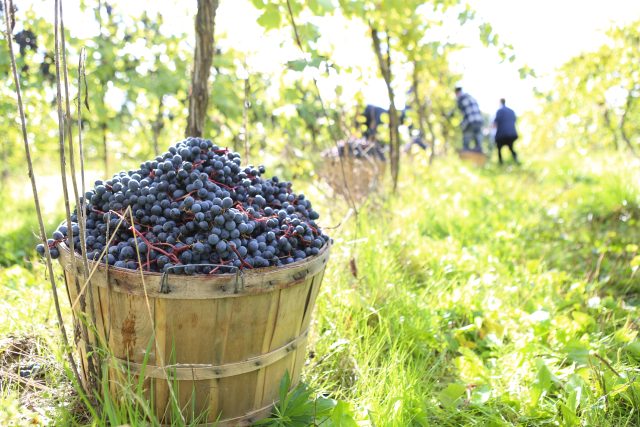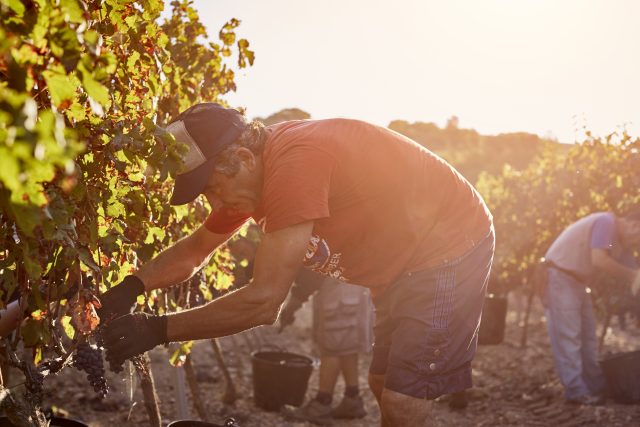This website uses cookies so that we can provide you with the best user experience possible. Cookie information is stored in your browser and performs functions such as recognising you when you return to our website and helping our team to understand which sections of the website you find most interesting and useful.
Is it time to stop paying Champagne pickers by the kilo?
Following the death of four grape pickers in Champagne, caused partially by soaring temperatures during harvest, producers are questioning whether a new approach is called for.

The unique nature of the 2023 Champagne harvest, which boasted the heaviest bunches of grapes on record, was somewhat marred by widespread reports of four deaths in the region’s vineyards.
With temperatures climbing to 38 °C during the first week of picking in some parts of Champagne, workers were overcome by the heat with one suffering a cardiac arrest and another suffering fatal injuries after falling from a tractor.
Maxime Toubart, president of the SGV, the main growers’ union in Champagne, said: “It’s the first time this has happened and the first time it’s been this hot [in September]. We are not used to harvesting in temperatures like this.”
Producers across Champagne are now asking what steps can be taken to prevent such tragedies occurring during future harvests.
The unusual heat experienced this year may have been exacerbated by additional factors including but not limited to the lack of sleep and living conditions that some grape pickers in the region are subjected to.
A series of incremental law changes in Champagne, designed to raise the quality of on-site accommodation for grape pickers during harvest, has ended up having quite the opposite effect. With the harvest only taking place for around two weeks per year, some small growers are unable or unwilling to invest in making the necessary improvements to rooms so that harvest workers can be accommodated on site.
As a direct result of this, many pickers are staying in hotels, often several to one room.
Unless a Champagne producer owns and farms its own vineyards, which is becoming increasingly rare in the region, the way in which the harvest is conducted and workers cared for is the responsibility of the individual grower, which then sells its grapes to the maisons with which it has contracts.

Hot topic
“The harvest used to be a fantastic moment… it used to be fun,” the managing director of a leading Champagne house, who asked not to be named, told the drinks business in Épernay this week.
“But is it the best way to pay people by the kilo when its 35 degrees outside and they’ve had four hours sleep?”
The unnamed spokesperson added that when workers are being paid by grape weight there is always a risk of over-exertion in order to pick as many grapes as possible and increase their wage.
According to the spokesperson, the Champagne winegrowers’ association is “talking to local MPs and asking them to speak to Paris about the regulations [concerning worker accommodation].”
“We have a few thousand growers in Champagne and we have to get everyone thinking along the same lines,” he said.
Paying pickers an hourly or daily wage, or picking only during the night when temperatures are cooler, could be possible alternative solutions to paying by-the-weight fees. And in future, being open to using technology to help with picking, could help to relieve pressure on workers.
“At the moment if we were to have robots picking in the vineyard it would be too much of a shock to the grapes,” the spokesperson told db, explaining that the current robotic models are not yet sophisticated enough.
“In the future perhaps, if things become more advanced, then it could be an option. It would not necessarily have to mean using fewer people during harvest. If we had the perfect fine-tuning of all these machines then we would be able to work more with automated machinery alongside humans in both the vineyard and cellar,” he said.

